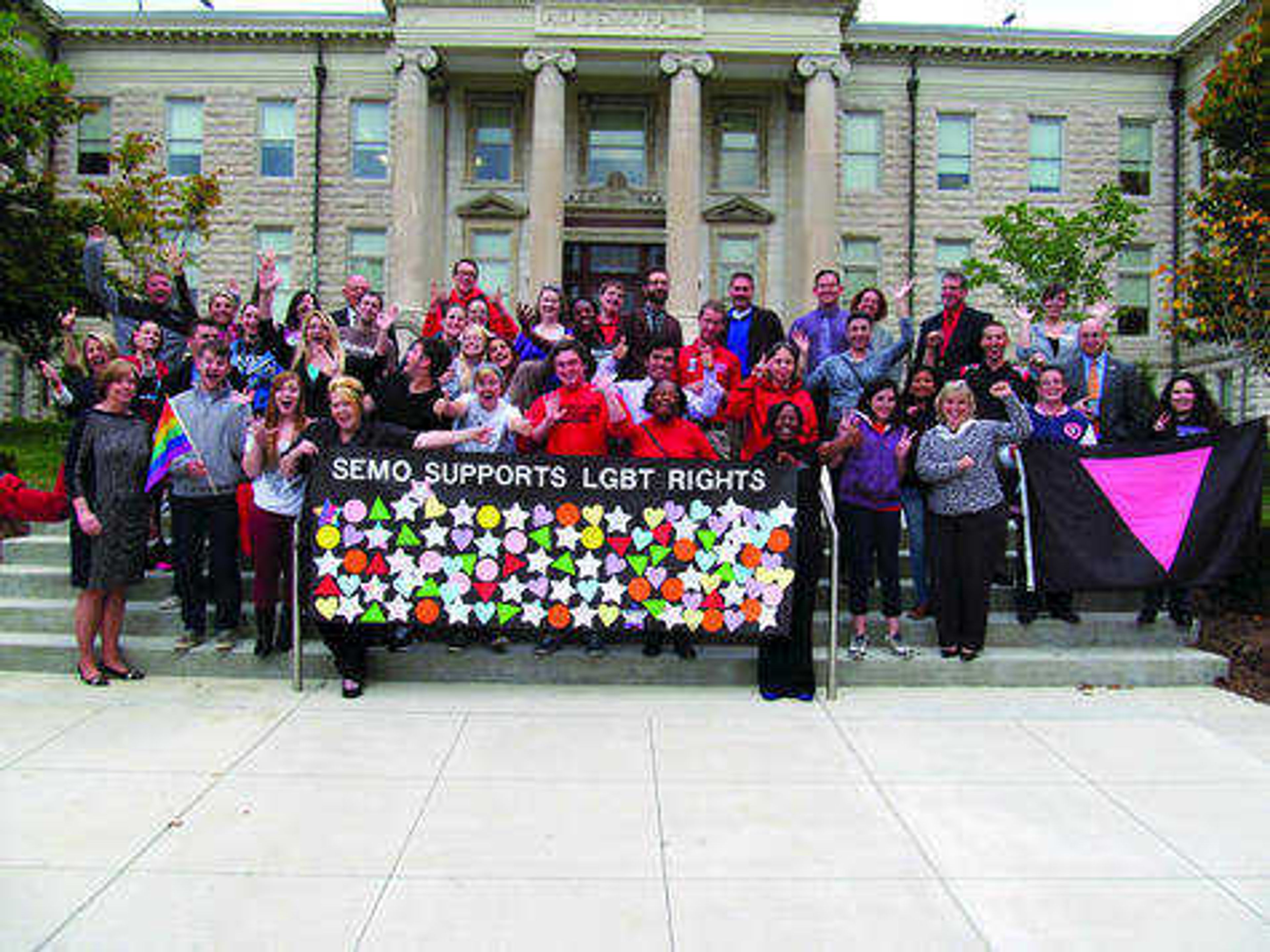Southeast Missouri State University's Safe Zone program boasts more than 300 "allies" as resources to the lesbian, gay, bisexual and transgender community. Megan Murray, the coordinator for leadership development, initiated the program in February 2014 and currently facilitates the sessions.
"For the program, it starts out with information about why Safe Zone is necessary, how it's helpful to students, and then we go into talking about terminology within the LGBT community because it's new for a lot of people, especially since this is for allies," Murray said. "So it's straight people, and straight people don't know about the LGBT community quite as often. So we go through myths, terms, definitions and things of that nature, and then we move into how to be an ally, where to refer students, how to be supportive and then some counseling tips and skills that are just helpful for conversations with anyone."
Murray said people then create an action plan and sign a reminder to themselves to conduct themselves as best they can in terms of being LGBT conscious. The trainees also get the option to be listed as "an ally on campus" where they get decals or stickers proving they're resources for LGBT members in case they need a referral or want to discuss an issue.
"If a student who is maybe still in the closet as people like to say, they're not comfortable coming out just yet, they can click on here at semo.edu/lgbt, and then they can say 'OK, I want to talk to someone who I know is going to be super, super supportive,'" Murray said. "So they can look on here, and they can see 'OK, I know this individual; I've met them before, so I'd like to go talk to them about this.'"
Ryan Rhodes, an LGBT Resource Center mentor for LGBT students who want to consult their peers, said that after more than a year of operation, he has seen progress.
"I've actually seen a lot more stickers," Rhodes said. "More than just [resident assistants], I've seen residents. I've seen a lot more faculty. Since Safe Zone started, we've opened up the LGBT Resource Center in August, and we have a graduate assistant. We have four volunteer peer mentors. Recently President [Dr. Kenneth W.] Dobbins recommended to the Board of Regents that we include a non-discrimination policy for employees and faculty in regards to adding LGBT."
Rhodes said that, in his opinion, Student Government Association has been more "open to non-discrimination policies." He feels like there are more allies as well.
"In my experience, I feel like student government has become more open to protecting these LGBT students, and I've seen a lot more of a presence of LGBT students," Rhodes said. "I don't know if that's because more have come here or if more have felt braver because our school has become more embracive."
Since the program started there have been some changes, including the start of the website in September that lists the Safe Zone allies. The training also has been made to be more convenient.
"Originally, it was four hours separated into two separate trainings," Murray said. "From some feedback, I combined the two separate sessions into one three-hour training, so it's better time-wise for people to fit into their schedules."
Murray believes that the program is important as a resource for faculty, staff and students because it affords people an opportunity to learn about shifts in terminology and to learn what they can do to help LGBT students. Murray also said the program has made LGBT students feel like they are less "invisible" and more like their needs are being addressed even if they don't utilize the program personally.
Murray said Safe Zone includes a brief slideshow and some videos. However, the form is closely related to a workshop.
"A lot of it is just discussion based -- that's the best part about the program," Murray said. "It kind of makes each group a little different."
Safe Zone training teaches people to be LGBT consultants.
"Sometimes they just want to talk, say their coming out experience, have conversation with a like-minded individual, but they feel like counseling is clinical," Murray said. "Like, 'If I go to counseling, it means there's something wrong' and so, if it's just the coming out experience, they don't want to feel like there's something wrong."
The next scheduled training dates are Wednesday and April 14. Students can register online by going to semo.edu/training/safe-zone and clicking the "Register Now!" tab on the left side of the page.






